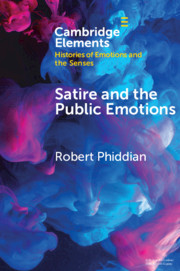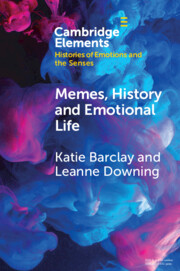Satire and the Public Emotions
The dream of political satire - to fearlessly speak truth to power - is not matched by its actual effects. This study explores the role of satirical communication in licensing public expression of harsh emotions defined in neuroscience as the CAD (contempt, anger, disgust) triad. The mobilisation of these emotions is a fundamental distinction between satirical and comic laughter. Phiddian pursues this argument particularly through an account of Jonathan Swift and his contemporaries. They played a crucial role in the early eighteenth century to make space in the public sphere for intemperate dissent, an essential condition of free political expression.
- Reveals the centrality of the harsh emotions defined in neuroscience as the CAD (contempt, anger, disgust) triad to political satire
- Makes a significant contribution to our understanding of the works of Jonathan Swift (particularly Gulliver's Travels) and other eighteenth-century satirists
- Exposes the tension between the aims and the effects of political satire and reflects on satire's role in recent US politics and the digital age
Product details
January 2020Paperback
9781108798839
75 pages
228 × 153 × 5 mm
0.2kg
Available
Table of Contents
- 1. The functions of satire
- 2. Satire and the contempt, anger, disgust (CAD) triad of emotions
- 3. The passions, satire, and liberty of expression in the craftsman moment
- 4. Gulliver's Travels – 'wit, confederated with truth'
- 5. Epilogue. Satire in the digital age.







